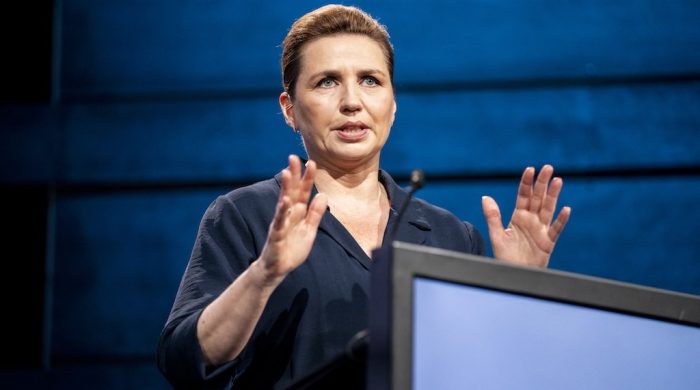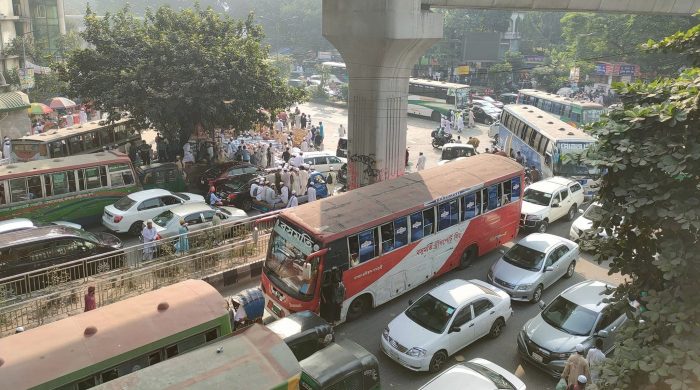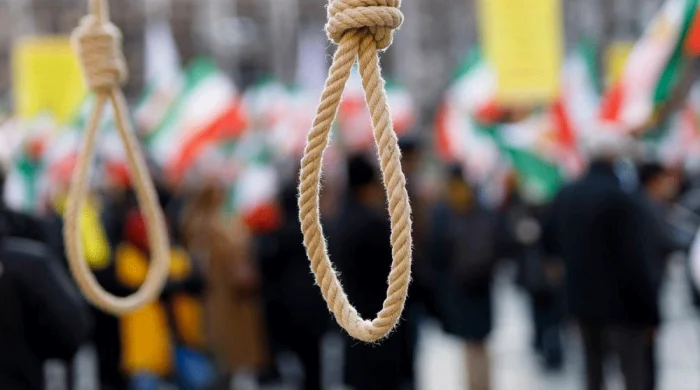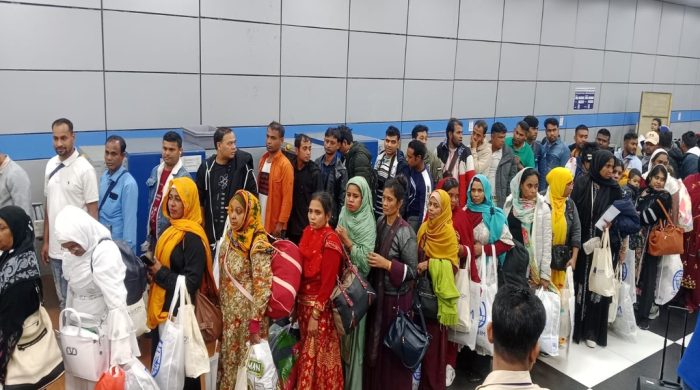
(FILES) Denmark's Prime Minister Mette Frederiksen addresses participants of the 7th annual Copenhagen Democracy Summit at the Royal Danish Playhouse in Copenhagen on May 14, 2024. Danish media reports that PM Mette Fredriksen was assaulted in central Copenhagen on June 7, 2024, allegedly hit in the face, shocked but no serious injuries. (Photo by Ida Marie Odgaard / Ritzau Scanpix / AFP) / Denmark OUT
After a patch up of differences with one of its ley party members Congress, India’s biggest opposition party, is set to grab 100 parliamentary seats after nearly a decade.
The party secured 99 seats in the recently concluded national elections, causing some disappointment among many party men as well as supporters and drawing sharp ridicule from the Hindu nationalist BJP party.
BJP leader Narendra Modi sharply criticised his secularist arch rivals for failing to secure 100 seats in national polls even after ten years, apparently in a bid to divert public attention from his party’s failure to win absolute majority and its lowest seat count in 15 years.
However, Modi’s attempts to deflect attention would likely prove naïve and premature as Congress could end up with 101 seats.
The Congress party’s Vishal Patil had contested as an independent candidate in a Maharashtra seat after the pro-Hindu Shiv Sena (UBT) party, Congress’ main coalition partner in the state, stubbornly held on to its decision to field its own candidate defying consultations.
Vishal Patil ultimately won as an independent defeating the right-wing candidate from Congress alliance, but on Thursday officially reaffirmed his support for Congress.
The Congress now only awaits the parliament secretariat’s approvalseat to officially raise its seat count to100.
Then there is Pappu Yadav of Bihar. He is another leader who won as an independent candidate from Bihar state’s Purnea seat after differences with Congress emerged over seat sharing. He is also expected to support the Congress potentially taking the biggest opposition party’s total seat count to 101.
Collectively with its partner parties, Congress won 232 seats during the polls. Pledges of allegiance by rebel party leaders would only add two more to the seat count, still requiring as many as 38 seats to form a government.
Notably, with 293 seats the BJP-led alliance is set to form the next government, with Modi poised to take oath as prime minister on Sunday. However, the entire coalition fell short of the 300-seat mark, despite boasting to win 400 seats before the elections.
The election results have naturally put top BJP leaders in a somewhat uneasy situation, prompting them to bring attention to the opposition’s election report card.



























